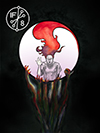A guest post by Randy McCharles.
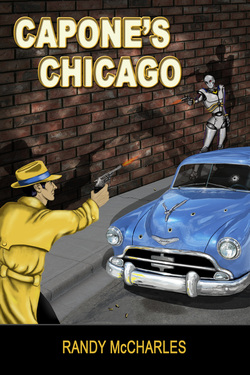 Have you ever wondered why some of your favorite authors appear frequently as convention guests while others are so scarce you sometimes wonder if they are even real people? Well, there are two main factors. The first one is simple. Some authors enjoy and see business benefits of convention appearances and make themselves available. Other do not. You almost have to kidnap them to make an appearance. The second factor is much trickier. Every convention is fairly unique in its goals and finances. The cost of bringing in guests is usually the most expensive line item in the budget, but even more important, each convention has a unique vision of the experience it wishes to provide its attendees. While there is no official breakdown, I have defined six conference models that provide different mixes of content for ‘craft’ (craft development opportunities for writers) VS ‘commercial’ (content readers enjoy such as meeting their favorite authors, hearing them speak, and getting autographs). Most literary events with guests will fall near one of these categories.
Have you ever wondered why some of your favorite authors appear frequently as convention guests while others are so scarce you sometimes wonder if they are even real people? Well, there are two main factors. The first one is simple. Some authors enjoy and see business benefits of convention appearances and make themselves available. Other do not. You almost have to kidnap them to make an appearance. The second factor is much trickier. Every convention is fairly unique in its goals and finances. The cost of bringing in guests is usually the most expensive line item in the budget, but even more important, each convention has a unique vision of the experience it wishes to provide its attendees. While there is no official breakdown, I have defined six conference models that provide different mixes of content for ‘craft’ (craft development opportunities for writers) VS ‘commercial’ (content readers enjoy such as meeting their favorite authors, hearing them speak, and getting autographs). Most literary events with guests will fall near one of these categories.

I use “Literary Festival” to describe events that are generally open market bookstores. Readers drop in for a fee of $0 (or near $0) to buy books from vendors and get them signed by authors. Many of these events bring in a few big name authors as a means of promoting the event and drawing more readers. The costs are paid for by selling the tables to vendors. Usually, guests do not provide presentations, though this has been an increasing phenomena. Often such presentations have a separate fee.
The “Trade Show” is similar to the Literary Festival in that it is mostly vendor tables, but they have a larger emphasis on guest presentations and panel discussions. While historically such trade shows deal solely with visual media (film and comics), they are increasingly including authors and books. Unlike Literary Festivals, these generally cost as much as $100 to attend.
The “Fan Convention” is fairly unique in that, unlike most other models, it is not run as a business. Instead, volunteers run it from the top down, with no paid staff. Guests also volunteer, having their travel and accommodations paid for, but generally donating their time, much of which is spent in presentations and panel discussion. Attending these events usually costs around $50.
The “Reader/Writer Festival” is an offshoot of the Fan Convention, or perhaps a return to what many Fan Conventions were in the 70’s. While today’s Fan Conventions often focus on visual media, including film, costuming, and anime, the Reader/Writer festival focuses on books and provides content for readers as well as writers. Like Fan Conventions, these are usually volunteer run, guests donate their time on presentations and panels, and attending costs around $50.
The “Writers Conference” is focused on craft development and is of little interest to non-writers. Guests do receive a substantial honorarium, but are also required to be successful instructors as well as successful writers. They generally offer some books sales and autographs that are open to the public. Cost of attending is in the several hundred dollar range.
The “Writers Workshop” is a more participatory version of the Writers Conference, usually much smaller, and requires attendees to work like university students. The guest instructors, as well, must work like university instructors. Cost of attending is generally much higher than a Writers Conference, and many workshops vet their attendees.
You may have noticed a correlation between guest honorariums and cost of attending. As I mentioned earlier, the cost of bringing in guests is usually the most expensive cost for any convention. Those that offer higher honorariums must find the funds somewhere, usually by charging their attendees a higher ticket price. Conversely, those that offer their guests higher honorariums usually also demand more from their guests, which brings me back to guest availability.
The business of authors is not attending conventions. It is writing books. Taking time out of your writing schedule to attend a convention as a guest is time not spent writing. Some authors do not wish to lose this writing time. Some are willing to sell their time. However, not all convention models can afford to buy it. eg. If Fan Conventions began providing high honorariums like Writers Conferences, they would cost more to attend ($75 instead of $50) and have to make other changes. That price tag doesn’t work for their model and can lead to bankruptcy. Fan Conventions exist, however, because many authors opt to volunteer their time, either as pay-it-forward for help they received earlier in their careers, as part of their brand marketing, or as simply an opportunity to meet their readers. Often all three.
Some authors do make attending conventions part of their business. Especially if teaching craft becomes part of their brand. Many authors love to teach craft. Some even write books about it. You will find such authors as guests at Writers Workshops, Writers Conferences, and Reader/Writer festivals.
So picture yourself as an organizer for a convention. It doesn’t matter which model you choose. You have a guest budget. It may be $5,000 (a small Fan Convention) or $50,000 (A large Writer’s Conference). What kind of guests do you need? Best-selling authors to autograph books? Authors who are not shy and love to talk with their readers? Authors who can give great presentations on craft development? Authors who can help writers with their manuscripts? All of the above? How much can you afford to spend on guest travel? Can you bring someone from the UK or Australia to North America? Or must you limit yourself to $500 flights? Can you afford to bring in your guest’s spouse? (Double the airfare.) Sticking with a budget is tricky, especially when a wide range of factors can impact the cost of bringing in any particular guest.
Let’s say you’ve identified the perfect guests. Are they available? Do they receive 100 guest invitations a year and can only accept 2? Do they even do conventions? Is your convention on their radar?
I’ve been organizing conventions since 2001. I’ve worked on a local fan convention, a regional fan convention (Westercon), an international writers convention (World Fantasy), and currently chair the When Words Collide Readers/Writers festival. After 13 years it is still difficult to identify the perfect guest — someone who delivers on the convention’s vision, is affordable and, most important, is available. It usually takes nine months to secure five guests. Sound like fun? Well, it is, actually. And you do get to meet a lot of really interesting authors.
As a final note I’ll list a few reasons why authors I’ve invited in the past have turned down the invitation (all perfectly valid, especially if they travel a lot):
- Air travel is a pain. I only travel to conventions that have a direct flight from my city.
- Air travel is a pain. I only travel business class. (This was from the UK and severely broke the budget)
- I won’t leave the country. (This was from the US invited to Canada).
- I don’t do conventions that time of year; I spend it with my family.
- I am already booked that weekend.
There have also been some success stories:
- Someone who doesn’t fly came to Calgary by train. From Texas!
- Someone who is very busy was finally available after being invited 4 years in a row.
- Many authors who are very busy had the stars align and were able to accept their invitation within days of receiving it.
All that said, having inviting innumerable guests to conventions over the years, I have a long list of people I would love to see as guests at some point. I often travel to distant conventions to see them. There is a wealth of terrific authors out there. Reading their books is a pleasure. Meeting them in person, doubly so.
BTW Two aliens walk into a bar and spot their favorite author sitting at a table having a drink. One alien turns to the other and says, “I wonder if she traveled as far to get here as we did?”
 Randy McCharles Bio:Randy McCharles is an award-winning author of speculative short fiction, and was included in Year’s Best Fantasy 9. In January 2014, he left his day job to write full time and focus his attention on novel length works. When not making up tall tales, Randy organizes literary events, including chairing the When Words Collide Festival for Readers and Writers. You can find out more about Randy on his web site: http://randymccharles.com
Randy McCharles Bio:Randy McCharles is an award-winning author of speculative short fiction, and was included in Year’s Best Fantasy 9. In January 2014, he left his day job to write full time and focus his attention on novel length works. When not making up tall tales, Randy organizes literary events, including chairing the When Words Collide Festival for Readers and Writers. You can find out more about Randy on his web site: http://randymccharles.com

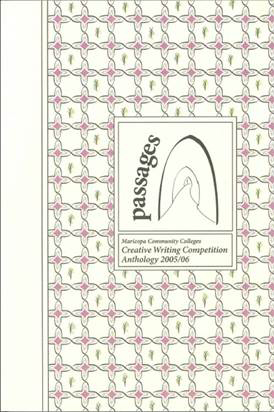
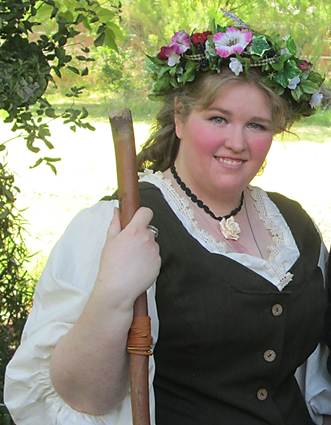


 Let’s be frank. Writers are sympathetic characters, editors are not. Writers toil in romanticized isolation but get invited to the coolest parties. They create and share every moment of joy and sorrow experienced by not just one character, but by an entire world of their creation. They brainstorm and draft, rewrite and polish, and then one day they mass submit that perfect story to the editorial altars.
Let’s be frank. Writers are sympathetic characters, editors are not. Writers toil in romanticized isolation but get invited to the coolest parties. They create and share every moment of joy and sorrow experienced by not just one character, but by an entire world of their creation. They brainstorm and draft, rewrite and polish, and then one day they mass submit that perfect story to the editorial altars. As a writer, I’ve worked with a variety of editors, good and bad, from newspapers and books to literary and genre magazines. And as an editor, I’ve worked with sci-fi writers and romance novelists, journalists, and poets. There are countless essays about what editors are looking for, what their major peeves are, and how you can improve or kill your chances of getting published. Some of my favorite can be found right here on The Fictorians. After you’re done reading my essay, make it a point to check out Joshua Essoe’s “
As a writer, I’ve worked with a variety of editors, good and bad, from newspapers and books to literary and genre magazines. And as an editor, I’ve worked with sci-fi writers and romance novelists, journalists, and poets. There are countless essays about what editors are looking for, what their major peeves are, and how you can improve or kill your chances of getting published. Some of my favorite can be found right here on The Fictorians. After you’re done reading my essay, make it a point to check out Joshua Essoe’s “ If you’re a writer reading this, think about the last time you asked your friend, husband, wife, or dog to read the latest draft of your story. Did you notice how their eyes darted toward the door in a desperate attempt to escape? Did they sigh? Did they take your pages only to not have read them a month later? Did they say it was nice? Editors will never treat you like that. This bears repeating: editors want to read your work. You are their raison d’être.
If you’re a writer reading this, think about the last time you asked your friend, husband, wife, or dog to read the latest draft of your story. Did you notice how their eyes darted toward the door in a desperate attempt to escape? Did they sigh? Did they take your pages only to not have read them a month later? Did they say it was nice? Editors will never treat you like that. This bears repeating: editors want to read your work. You are their raison d’être.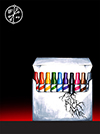 When a form letter goes out, the work that came in most likely was riddled with grammatical and spelling errors, displayed a total disregard of the publication’s submission guidelines, and/or wasn’t even a complete story. The form letter allows the editor to exemplify a level of professionalism with which the writer may not have treated his or her work.
When a form letter goes out, the work that came in most likely was riddled with grammatical and spelling errors, displayed a total disregard of the publication’s submission guidelines, and/or wasn’t even a complete story. The form letter allows the editor to exemplify a level of professionalism with which the writer may not have treated his or her work.